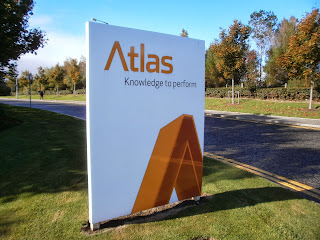The Oilholic has had the pleasure of visiting quite a few E&P facilities over the years from offshore rigs to onshore gas fields. Going back roughly a decade, it wasn't uncommon [and still isn't] to see roughnecks in hard hats being given instructions ranging from operational to health and safety by a superior.
The mode of communication usually involved barking verbal instructions in highly colourful language with bulky printed training manuals on-hand containing everything from evacuation routes to rules and regulations. All of this has changed and rather dramatically, if one may add. What started as a slow, but sure, transformation at the turn of the millennium came in the form of former roughnecks and rig engineers imparting their wisdom for the benefit of budding on-site professionals via training courses using the electronic medium.
By 2006-07, e-learning provided by specialist providers had gained considerable traction in what is largely a contact sport. Among the stalwarts, in this relatively young but highly competitive market, is a part private equity-owned, part employee-owned educator headquartered in Aberdeen, Scotland called
Atlas.
The firm came on the Oilholic's radar back in 2011 at the
20th World Petroleum Congress in Doha. A further look into
Atlas, at the suggestion of a banking sector contact, revealed a client portfolio of some of the biggest names in the business for a company which is less than 20 years old. IOCs aside, strikingly enough, this blogger found that a number of NOCs had also availed Atlas' service to give their workforces – as the educator's motto states – the "knowledge to perform."
For the sake of a crude analogy, the Oilholic quipped to Kevin Short, Director of Sales at Atlas, if they'd in fact become the
Rosetta Stone of the oil & gas business. "I don’t think it is that simple, although our e-learning courses and industry solutions are indeed multi-linguistic," he laughs.
For Short, it's more about creating, marketing and selling virtual learning solutions aimed at "improving efficiencies while minimising operational and legislative risk". This could range from e-training courses for employees moving dangerous goods by air to a simple training solution for evacuating an E&P facility.
"There are industry standard courses available from our library; but more often than not, you'll find clients ordering bespoke solutions or an altered version of an existing training solution to suit their specific needs," Short explains.
There is no mystique about what Atlas provides and the company continues to record double-digit growth on an annualised basis, much to the delight of its PE owners [
HG Capital] one assumes. Peer-to-peer contact and reviews have certainly been of immense help in achieving this – both in terms of retaining clients and bagging new ones. Over the years, Atlas has expanded to Dubai, Kuala Lumpur and Houston.
Understandably, the firm keeps abreast of new emerging techniques in the E&P sector, unconventional prospection activity and allied health and safety issues to come-up with e-learning options for clients.
However, the Oilholic put one caveat to Short – pros from Aberdeen who have gained expertise for better parts of four decades, especially on the health and safety front in wake of the
Piper Alpha tragedy (1988), are also on the educating circuit from Dubai to Calgary and in great demand. So is Atlas toughing it out with them too?
"In a sense, perhaps yes. But in terms of the broader picture no! That's because we also work with some of these professionals a lot of the time and hire them as what we call 'Subject Matter Experts' to work on fresh concepts for courses and bespoke solutions for clients. What's good for them is good for Atlas and by default good for the commissioning client."
When it comes to fishing these guys out – networking, events, headhunting those with industry reputation and project-based demand all play a part. Such expertise has helped the company put together its patented Atlas Knowledge Centre – a 3,000 page grab of all of the company's core content. Akin to a virtual oil & gas knowledge encyclopaedia, it is made available to subscribers serving as a "refresher" or instant help-guide to learners.
But what about converting new clients around the e-learning viewpoint? Short says competency is key here. "We can help companies by ensuring that their recruits not only just sit the course but based on the information that's been given to them, they become competent to handle the tasks at hand. It is not just about providing reading and reference material but rather ensuring that the candidate is learning."
Atlas also has an advisory board to help it test run pilot courses and provide constant feedback. Last time the Oilholic checked, there were around 53 companies on board for such an exercise. Finally, the company is also rather careful in being shall we say 'electronic platform neutral'.
"If a client wants an e-learning solution to work on a BlackBerry we wouldn't urge them to adopt an Android OS system, or Apple OS. Ultimately, that's their call. We have a young team here who will tailor a course to the clients' IT requirements and subsequently licence it to them, rather than it being the other way around." A wise line to take indeed! That’s all for the moment folks! Keep reading, keep it 'crude'!
NOTE: November 1, 2013 - To read this blogger's interview with Atlas CFO Graeme Park for CFO World click here.
© Gaurav Sharma 2013. Photo: Atlas HQ, Energy Park, Aberdeen, Scotland © Gaurav Sharma, October 2013.




